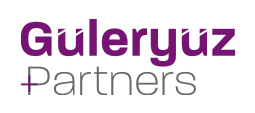Law No. 805 on Compulsory Use of Turkish Language in Economic Institutions ["Law No. 805"] has been in effect for very long time, i.e., since April 22, 1926. Even though it is an old regulation with only 9 articles, it has sparked debate regarding international contracts over the years, particularly in the field of arbitration, and it has even become a roadblock in our legal system regarding the validity of contracts.
While the Law No. 805 obliges Turkish language to be used in books to be kept concerning all kinds of transactions and contracts concluded within Turkey by Turkish companies, it only requires international companies and institutions to use Turkish in correspondence, transactions, and contacts with Turkish institutions and citizens of the Republic of Turkey, as well as documents and books to be submitted to the Republic of Turkey's government offices. Although some argue that contracts, which are a type of bilateral legal transaction, are likewise covered by Law No. 805; the absence of the term "contract" in the second article, which is explicitly mentioned in the first article of the Law, indicates that there are no linguistic restrictions and that these agreements can be made in any language desired.
Question: Is Law No. 805 Applicable to International Arbitration Agreements?
The applicability of Law No. 805 to international arbitration agreements is also specifically debated, in addition to whether it may be applied to contracts established between Turkish and foreign companies. Pursuant to the International Arbitration Law No. 4686 ["IAC"], there is no precondition that arbitration agreements be concluded in Turkish, even if both parties are Turkish, provided that there is an element of foreignness.
Moreover, numerous international conventions to which Turkey is a party, such as the 1958 New York Convention on the Recognition and Enforcement of Foreign Arbitration Awards and the 1961 European Convention on International Commercial Arbitration, also regulate formal requirements of arbitration agreements but do not impose a language restriction. As a result, it can be concluded that international arbitration agreements are not within the scope of Law No. 805, and are regulated under the IAC and international conventions, which are deemed lex specialis.
Until recently, however, Court of Cassation avoided making these determinations, sometimes resulting in the invalidation of international arbitration agreements. Since no consistent jurisprudence on the application of Law No. 805 and the IAC could be found in the decisions, the question of the arbitration agreement’s validity was answered differently in each case. In a judgement issued in 2007, the 11th Civil Chamber of the Court of Cassation examined the validity of an arbitration clause in a contract where one of the parties was foreign and the contract was drafted in English; and determined that the arbitration clause was valid and applicable, since foreign enterprises are not required to execute contracts in Turkish, citing Article 2 of Law No. 805. Despite the fact that Court of Cassation ruled the arbitration agreement to be valid, it examined the arbitration clause not within the scope of the IAC, but within the scope of the Law No. 805, contrary to what we noted above.
Again, Court of Cassation’s 11th Civil Chamber concluded in 2014 that the arbitration clause in a contract in which one of the parties was a foreign company was in violation of Law No. 805, because the contract was written in English. In a similar case, the same Chamber decided that the arbitration clause could not be relied upon due to the fact that the contract including the arbitration clause was drawn out in English. In both cases, an examination was undertaken under the provisions of Law No. 805, and the arbitration agreements were found to be invalid. While contracts involving a foreign company drafted in a foreign language is also not prohibited under Law No. 805, compliance with Law No. 805 should not even have been examined regarding arbitration clauses.
As can be seen, in the past, a stable Court of Cassation jurisprudence could not be established in terms of the validity of arbitration agreements. Moreover, whether or not Law No. 805 could be applied to arbitration agreements containing foreign elements and so falling within the scope of the IAC had not even been a point of debate in the aforementioned rulings. This in turn caused a great deal of confusion for companies that aimed to draft contracts with arbitration clauses, and it could even preclude Turkish companies from signing contracts with foreign companies in some cases.
Importance of Recent Court of Cassation Decisions on Arbitration Agreements in Foreign Languages
The above-mentioned approach of the Court of Cassation has begun to shift in recent decisions, and it has become more arbitration-friendly, as arbitration agreements are kept alive where it is appropriate by using the relevant section of the IAC. In this context, the 15th Civil Chamber of Court of Cassation, in a decision dated October 2, 2020 and numbered 2020/1714 E., 2020/2652 K., examined for the first time the objection made about the language of the contract within the scope of the IAC, and despite both parties being Turkish companies, has decided that the arbitration clause concluded in English does not constitute a violation of Law No. 805 as the foreign element of the dispute was present in accordance with article 2 of the IAC.
Likewise, in following Court of Cassation decisions, the presence of a foreign element is considered and, contracts are only deemed invalid in accordance with Law No. 805 in cases where there is no element of foreignness. In this context, it can be said that the Court of Cassation’s approach of examining contracts containing foreign elements within the scope of Law No. 805 in all cases has been replaced by a new approach of evaluating contracts containing the element of foreignness -even if both parties are Turkish- within the scope of the IAC. Therefore, in line with the relevant regulations and the necessities of business life, arbitration agreements and arbitration clauses in contracts involving foreign elements will be allowed to be drafted in the preferred language considering the new approach of the Court of Cassation.
Points of Consideration When Drafting Arbitration Agreements
Taking litigative action in the event of a possible dispute or an unfavorable arbitration decision on the grounds that the arbitration agreement violated Law No. 805 had become a typical occurrence, potentially invalidating the arbitration agreements. Court of Cassation’s recent judgments demonstrate that it now prioritizes the evaluation regarding the element of foreignness in the case and makes conclusions accordingly.
In light of these developments, in cases where both parties are Turkish companies, and there is no element of foreignness, Law No. 805 will apply, and if the arbitration agreement is written in a language other than Turkish, the arbitral awards may be subject to state judicial annulment. However, even in cases where parties are Turkish companies, it now seems feasible to conclude the arbitration agreement in a foreign language if there is a foreign element in the case, such as if one of the parties' partners is a foreign company.
By Zahide Altunbas Sancak, Partner, and Aziz Can Cengiz, Attorney, Guleryuz & Partners


